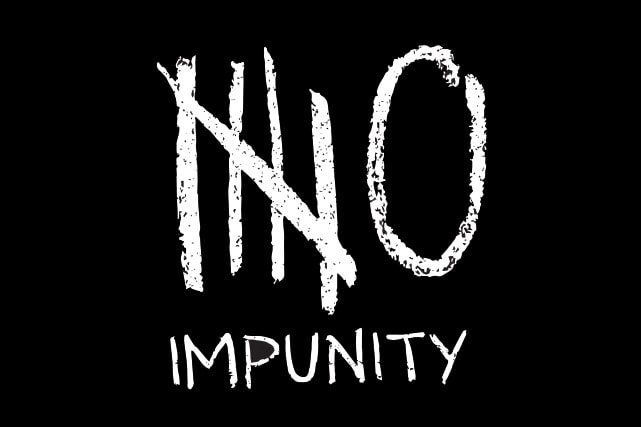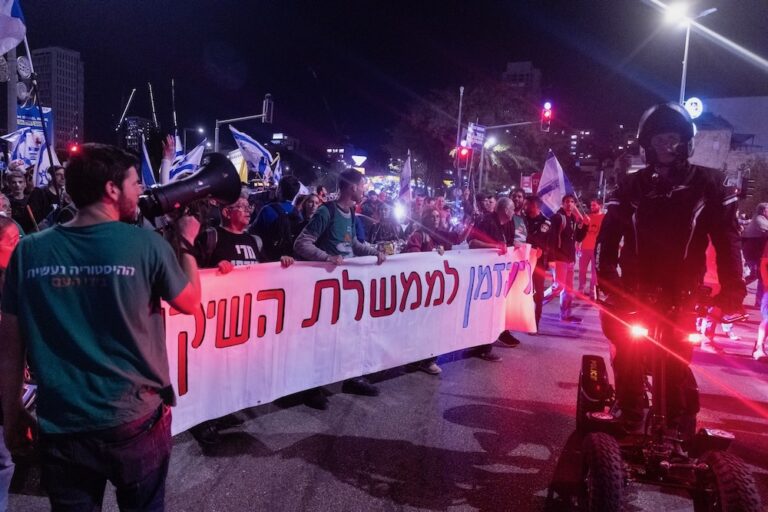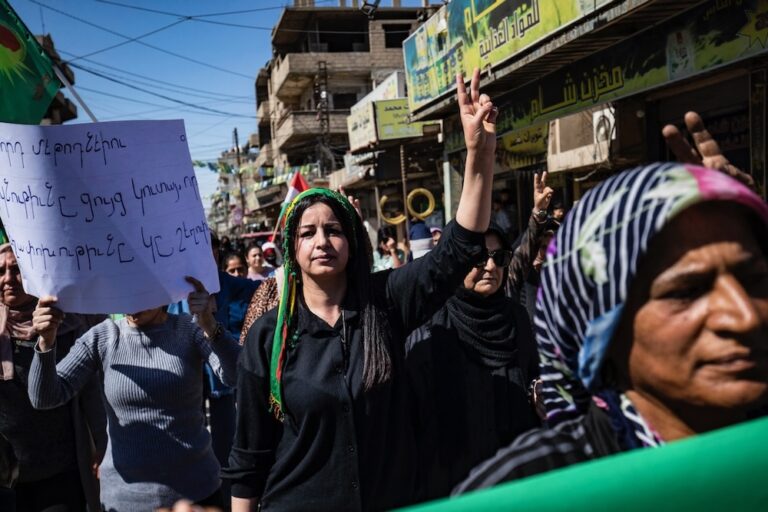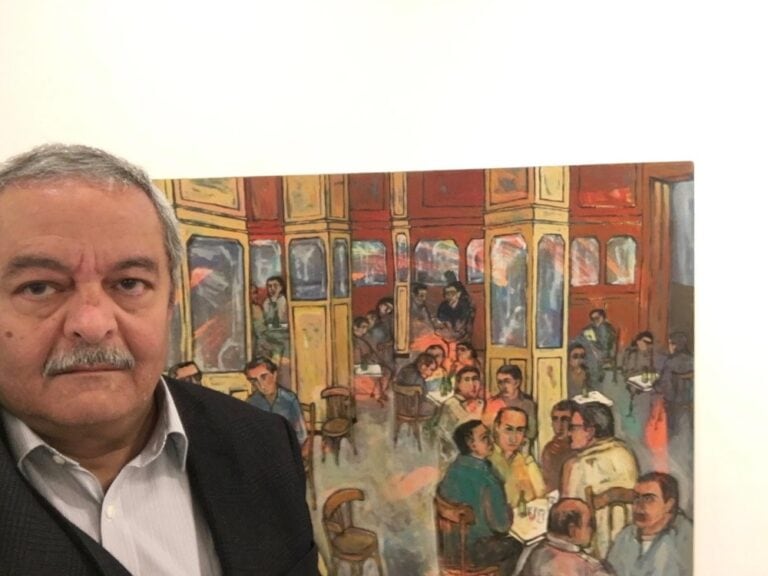During the International Day to End Impunity, we profile the cases of Jineth Bedoya Lima, Musa Saidykhan and Shan Dahar: Three cultures of impunity...and three paths to justice.
They tell us about things that some would rather keep in the shadows. Through them, we learn of drug cartels terrorizing communities, of the greedy, reckless, acts of multinationals damaging our land and our water. They report on the exploitation of indigenous communities. They uncover corruption. They tell us who is lying to us – and they prove it. And just as importantly, they inspire us with the courageous stories of those on the front lines, standing up for what is right.
They are journalists, and over the past decade, 827 of them – print and online freelance, citizen and broadcast – have been violently silenced for their work. Of those cases that have been even nominally investigated, fewer than one out of ten has been solved. Accountability for the powerful masterminds is even rarer.
This is not simply the absence of justice. It is an active strategy, referred to as “censorship by killing”, and we at IFEX have seen how the ripple effects extend through an entire community, even a country, when such crimes go unpunished.
2 November marks the United Nations International Day to End Impunity for Crimes against Journalists. Impunity in any form promotes lawlessness. Impunity for attacks aimed at silencing journalists and other critical voices goes further. It is an attack on the universal right to freedom of expression and information – fundamental to the defense of all other rights.
IFEX is a global network of over 100 organisations defending and promoting freedom of expression and information. We stand up to these pervasive cultures of impunity through our No Impunity campaign.
In this campaign, which operates year-round, we share the stories of individuals who have been targeted, and the very real consequences for them, their families, friends, colleagues and communities. We connect these individual cases to broader implications for freedom of expression and other human rights. And we collaborate with other organisations to resolve individual cases and to pressure governments to step up and end the culture of impunity in their countries.
On this International Day to End Impunity for Crimes Against Journalists, we share three faces of impunity, three cultures of impunity, and three versions of what justice means.
Three faces of impunity
The case of Jineth Bedoya
On 25 May 2000, Jineth Bedoya was working as a journalist for El Spectador. She was on her way to interview sources for a story on the illegal sale of arms between paramilitaries and Colombian state officials at a maximum-security prison near Bogota. She never made it into the prison. Jineth was ambushed outside, abducted, tortured and sexually assaulted, and left for dead. Her attackers made it known that the assault was a “message to the press”.
Jineth survived the attack, but kept quiet about the incident for nearly nine years – nine years during which her attackers remained free. In a display of almost inconceivable courage, she continued to work, reporting on armed conflict and human rights in Colombia. When she decided to break her silence, Jineth recalls that, “Having to keep writing about stories that were my own story made me realize that I had to speak.”
And so began a tenacious fight for justice; not only for herself, but for the rights of all women who have been victims of sexual violence in Colombia. According to Jineth, it became “Not just the story of one journalist or one woman, but also the story of hundreds of journalists and millions of women”.
This year, sixteen years after the attack, two of the three perpetrators identified were convicted. It is a significant milestone in Jineth’s case, but it is also an example of how hard it is to fight impunity.
It took years of tireless advocacy efforts by Jineth, the Colombia-based IFEX member the Foundation for Press Freedom (FLIP), as well as a number of other civil society and media allies. Years of persistent calls for accountability and ongoing legal battles in Colombia’s courts and the Inter-American Human Rights System exacted a heavy emotional toll, and involved countless hours and resource commitments. Without such work, Jineth’s case would likely have remained just another impunity statistic.
The case of Musa Saidykhan
President Yaya Jammeh has presided over the West African country of The Gambia for 22 years, since coming to power by military coup. His rule has been characterized by the imprisonment, torture, extrajudicial execution, and forced disappearances of citizens and journalists. Musa Saidykhan is one of these journalists.
On 28 March 2006, Musa was arrested at The Independent newspaper during a media crackdown in the lead up to national elections. He spent three weeks in detention, enduring brutal torture, including being stabbed by a bayonet and having electric shocks applied to his genitals.
Musa bears the physical scars left by the agents of The Gambia’s notorious National Intelligence Agency today. After one of his children caught a glimpse of the damage and asked what had caused the scars, Musa explained, “ I could not lie to him. I told him that I was the victim of torture…he was so frustrated and angry…and that was too difficult for me.” The hidden scars have continued to haunt Musa and his family, even after they found refuge in the United States.
Given the reality of systemic impunity for such attacks in the Gambia, Musa sought out IFEX member the Media Foundation for West Africa (MFWA) to bring his case to the regional West African court system, also referred to as the ECOWAS Community Court of Justice. In one sense, it was a success. The court ruled against The Gambia, and ordered that reparations be paid to Musa Saidykhan. However, five years later, the Gambia has yet to comply, and lobbying for their fulfillment of their obligations continues.
The fight against impunity doesn’t necessarily end with a court ruling; sometimes, this is just the beginning.
The case of Shan Dahar
The most recent of these cases involves an event that took place in the Larkana district of Pakistan’s Sindh province, on 1 January 2014. In the middle of the night Shan Dahar, a broadcast journalist for Abb Takk television, was gunned down. After being taken to a local hospital and waiting nine hours without getting the medical care he needed, Shan Dahar died.
The official story was that he was killed by stray celebratory gunfire during New Year’s Eve celebrations, but Shan had been working on a number of incendiary stories at the time, including one on the black market sale of medicine donated by an NGO. Local media groups and the family of Shan Dahar were quick to point this out, along with other evidence that the killing had been a targeted attack in retribution for his reporting. After a year and a half of pressing the police to reinvestigate the case, the family of Shan Dahar finally managed to convince the Deputy Inspector General of Police to reopen investigations.
However, the momentum has been short-lived. According to Shan Dahar’s sister Fouzia Sultana, “It doesn’t matter how much efforts we pay for the justice, but due to political influence they stopped the investigation. Now police neither deny investigating the case nor do investigations.”
The emotional and financial toll on Shan’s family continues. Fouzia and her husband are caring for Shan’s children, and have received death threats over their inquiries. Fouzia has called on the media for help. “I need the help of the journalists and press clubs in spreading my voice in the public. I also request all the communities to help me in getting justice.”
IFEX member the Pakistan Press Foundation (PPF) answered the call, and is working with local and international media and civil society to keep Shan’s case in the spotlight – and out of the shadows.
Three cultures of impunity
These three examples of justice on hold are emblematic of what a culture of impunity looks like.
In Colombia, paramilitaries, rebel groups and government officials have often used violence to suppress reporting that exposes abuses carried out during its decades-long civil conflict. Threats and acts of sexual violence against female reporters are all too common. Impunity for such attacks has been recognized as a serious obstacle to peace and reconciliation. The question of justice for such crimes was central in the country’s recent plebiscite, in which the peace agreement between the government and the Revolutionary Armed Forces of Colombia (FARC) was rejected, by the narrowest of margins.
In The Gambia, critical reporting of Jammeh’s government is virtually non-existent, thanks to the campaign of fear and intimidation perpetrated by the regime against journalists like Musa Saidykhan. Media plurality in the country is extremely limited, and most of those who dare to report negatively on the regime must do so from the outside. Despite the well-documented involvement of state security agents in attacks on journalists, human rights defenders and the political opposition, few investigations have taken place and none have been held accountable.
In Pakistan, where local corruption is all too common, proper investigations of the many attacks on those who have tried to expose malfeasance are often hampered by interference. According to PPF, dozens of journalists have been killed in the past two decades, but only four cases have concluded with a conviction. For a reporter, Pakistan remains one of the most dangerous places in the world, and consistently ranks alongside war-torn countries like Iraq and Syria.
Colombia and Pakistan make frequent appearances on The Committee to Protect Journalists’ annual Impunity Index, and President Yaya Jammeh has been crowned the “King of Impunity” by West African civil society. The history of impunity in all three countries continues to fuel the cycle of violence visited upon journalists.
Three visions of justice
Accountability goes beyond ensuring that someone is punished; victims and their families should feel that justice has been served – that they can move on with their lives.
For Jineth, justice means more than prison-time for the perpetrators. “If anything can repair, even a little bit, the pain that my family, my friends and I have had to deal with for all these years, it’s having the truth told”. To her and those who advocate with her, this means the Colombian government must investigate and disclose the extent of involvement of state officials in her attack.
For Musa, justice means showing President Jammeh that even he is not above the law. He sees compliance with the ECOWAS ruling in his case as a future symbol of hope for other Gambian journalists who have faced similar struggles. Musa is cautious – he believes that “[Jammeh] will not comply with the ECOWAS ruling unless his hands are forced”. This is just what he and MFWA are actively encouraging the regional court to do.
Like the case of Jineth Bedoya, justice for the family of Shan Dahar means revealing the truth about what happened, and who was responsible – as well as the assurance that Shan’s children will be taken care of, physically and financially.
Around the world, there are people and organisations committed to ending gross injustices like those suffered by Jineth, Musa, Shan Dahar, and hundreds of other journalists and bloggers. IFEX believes that we can and must hold our governments to account for the actions of their agents, and honestly investigate the crimes that occur within their borders.
Working together, we can press organisations like ECOWAS to stand by their rulings and use their sanctioning mechanisms to enforce them; states like Colombia to pursue justice as far up the chain of government as it goes; and local bureaus like the Sindh police department to carry out their investigations thoroughly and in good faith.
Impunity is not a simple problem. We cannot say that the ‘cure’ is in sight. But gains have been made. The work of the IFEX network and others committed to defending the right to freedom of expression and information must, and will, continue. Journalists can only do the work that we, and the societies we live in, need them to do, when they can do so free from fear and intimidation.
They tell us who is lying to us – and they prove it.
Having to keep writing about stories that were my own story made me realize that I had to speak.
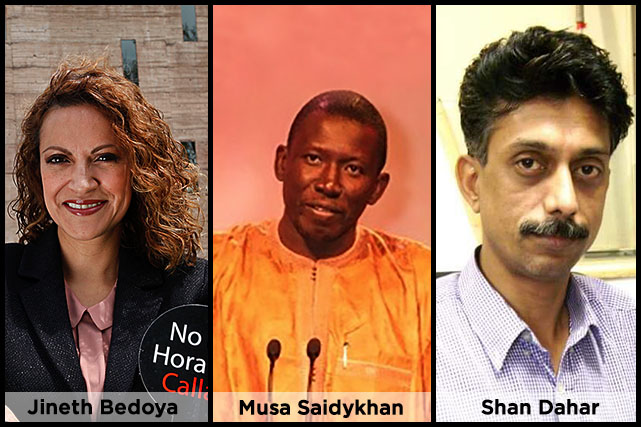
Shan had been working on a number of incendiary stories at the time, including one on the black market sale of medicine donated by an NGO.
If anything can repair, even a little bit, the pain that my family, my friends and I have had to deal with for all these years, it’s having the truth told.
Annie Game is IFEX Executive Director
